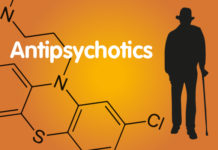Exploding Myths About Schizophrenia: An Interview with Courtenay Harding
The Vermont Longitudinal Study, led by Courtenay Harding, belied conventional beliefs about schizophrenia by showing remarkably good outcomes for patients discharged in the 1950s and '60s.
Randomized Controlled Trial Confirms That Antipsychotics Damage the Brain
A new study published in JAMA Psychiatry connects antipsychotics with damage to the brain in multiple areas.
A Short History of Tardive Dyskinesia: 65 Years of Drug-Induced Brain Damage That Rolls...
Psychiatry has long turned a blind eye to the full scope of harm associated with TD. New TD drugs "work" by further impairing brain function.
Recovery Rate Six Times Higher For Those Who Stop Antipsychotics Within Two Years
People with "serious mental illness" who stop taking antipsychotics are more likely to recover, even when accounting for baseline severity.
Service Users Report Psychiatric Professionals as the Least Helpful Factor in Quitting Antipsychotics
A new study published in Psychology and Psychotherapy: Theory, Research and Practice finds that psychiatrists and other doctors are the most unhelpful factor for...
Deadly Prescriptions: New Study Links Antipsychotics to Life-Threatening Risks in Dementia Patients
With pharmaceutical companies pushing antipsychotics for off-label use, dementia patients are being put at risk for devastating health consequences. Research suggests safer alternatives exist—but why aren’t they being prioritized?
Antipsychotics Increase Risk of Dementia; New Research Illuminates Why
In JAMA psychiatry, researchers outline new theories connecting antipsychotic use in people with schizophrenia and increased dementia risk.
Do Antipsychotics Protect Against Early Death? A Review of the Evidence
Psychiatry is now claiming that research has shown that antipsychotics reduce mortality among the seriously mentally ill. A critical review of the literature reveals that this claim is best described as the the field's latest "delusion" about the merits of these drugs.
Psych Drugs May Increase Likelihood of Death in Schizophrenia
The drugs, especially benzos and high doses of antipsychotics, led to an increased risk of death within five years. Antidepressants also did not reduce mortality.
Contribution of Antipsychotics to Suicidality and Depression
Peter Lehmann reviews the contribution of antipsychotics to suicide and depression in schizophrenia in the current International Journal of Psychotherapy. Publications about the intrinsic effects of...
Why Gradual Reduction of Antipsychotics Could Be Safer for Service Users
A new commentary published in Current Opinion in Psychiatry presents the case for slow tapering of antipsychotics. According to authors Mark Horowitz and Joanna...
Psychiatry Defends Its Antipsychotics: A Case Study of Institutional Corruption
Jeffrey LIeberman and colleagues have published a paper in the American Journal of Psychiatry stating that there is no evidence that psychiatric drugs cause long-term harm, and that the evidence shows that these drugs provide a great benefit to patients. A close examination of their review reveals that it is a classic example of institutional corruption, which was meant to protect guild interests.
Withdrawal from Antipsychotics
A review of the scientific literature related to the withdrawal of antipsychotics: animal studies, withdrawal symptoms, tapering success rates, and consumer accounts of discontinuation.
For People “At Risk for Psychosis,” Antipsychotics Associated with Worse Outcomes
Researchers studied whether antipsychotics could prevent transition to full psychosis and found that the drugs worsened outcomes.
Vitamin B6 Effective in Reducing Antipsychotic Induced Akathisia
A recent RCT showed that vitamin B6 is as effective as propranolol for the treatment of akathisia.
Researchers Test Harms and Benefits of Long Term Antipsychotic Use
Researchers from the City College of New York and Columbia University published a study this month testing the hypothesis that people diagnosed with schizophrenia treated long-term with antipsychotic drugs have worse outcomes than patients with no exposure to these drugs. They concluded that there is not a sufficient evidence base for the standard practice of long-term use of antipsychotic medications.
Antipsychotics Increase Mortality Risk in Patients with Parkinson’s Disease
A new study in JAMA Neurology finds that the use of antipsychotic drugs more than doubled the risk of death in patients with Parkinson’s...
The Case Against Antipsychotics
This review of the scientific literature, stretching across six decades, makes the case that antipsychotics, over the long-term, do more harm than good. The drugs lower recovery rates and worsen functional outcomes over longer periods of time.
How Exercise Can Help With First Episode Psychosis
New study examines the experiences of people utilizing an exercise program following a first-episode psychosis.
Experts Decry Dangerous Use of Antipsychotics in Children
In a featured article for Psychiatric Services, psychiatrists from Dartmouth raise the alarm on the increasing numbers of children prescribed dangerous antipsychotic drugs. Despite the fact that data on the safety of long-term use of these drugs in this vulnerable population “do not exist,” the rate of children and adolescents being prescribed antipsychotic drugs have continued to increase over the past fifteen years.
Antipsychotics Often Prescribed Without Informed Consent
New research reveals that patients are often not given fully informed consent before being prescribed antipsychotics.
Study Finds Improved Functioning for ‘Schizophrenia’ Without Antipsychotics
Long-term treatment with antipsychotic drugs is currently considered the standard treatment for patients diagnosed with ‘schizophrenia.’ A new study challenges this practice, however. The...
Long-term Outcomes Better for Those Who Stop Taking Antipsychotics
Research undermines the prolonged use of antipsychotics in schizophrenia treatment, suggesting improved social functioning and quality of life with discontinuation.
Very Slow Taper Best for Antipsychotic Discontinuation
An article in JAMA Psychiatry advises very slow tapering for best results when discontinuing antipsychotic drugs.
Patients Complain about Antipsychotic Medications Inducing “Zombie-like” State
People who take antipsychotic medications experience many side effects which have "major disruptive impact on their lives," according to research in the Journal of Mental Health Nursing.





























